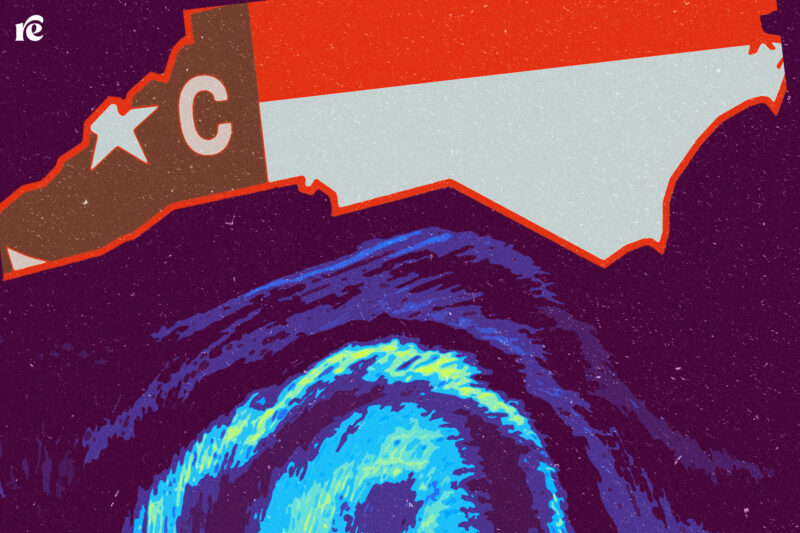Hurricane Helene Exacerbated Barriers to North Carolina Abortion Access
Opinion: North Carolinian Latines are being further harmed by abortion bans after Hurricane Helene forced several clinics to shut down.

The past month has been absolutely devastating for abortion access in North Carolina. Asheville’s Planned Parenthood, one of the only clinics in the western part of the state, was forced to close as a result of Hurricane Helene, and thousands of people are still without electricity, running water, and usable roads that could connect them to pharmacies or doctors’ offices. Nearby, Georgia’s temporary block of the state’s six-week abortion ban—and then its reinstatement just a week later—added to the confusion and desperation for care seekers across the South, as folks who would typically travel to North Carolina for abortion care were left without answers and without options.
The destruction of Hurricane Helene, coupled with Georgia’s shifting policies, has exacerbated barriers that have existed since the fall of Roe v. Wade in 2022. Since then, my own community is one of the few that has been hit hardest. With more than 1.1 million people, Latines make up the fastest growing population in North Carolina, many of whom are descendants of immigrants who struggle to comprehend the harsh reality that people seeking reproductive care in this country are now facing. My parents fled El Salvador’s civil war in the 1980s, hoping to find a safer, more stable place to raise our family. Never did I imagine that decades later, I would still live in North Carolina and call it home—nor did I expect to witness people here facing the same kind of oppressive, draconian laws that pregnant people endure back in El Salvador.
In the United States, there’s a dangerous stereotype that all Latines are anti-abortion, but that couldn’t be further from the truth. Latines are not just joining the fight for reproductive rights—we’ve been in it for years, and we will continue to fight until every person has the ability to control their own body, life, and future. As I’ve seen first-hand in the years since Dobbs v. Jackson Women’s Health Organization, and as I have seen growing up, living, and working in this community, reproductive freedom is ingrained in Latine past, present, and future.
Let’s start with the past. Abortion has been in Latine communities for centuries. From using medicinal herbs for reproductive health care to using FDA-approved medication abortion to end pregnancies in consideration of the health and well-being of the pregnant person, many of us have grown up listening to the stories of our elders and the honor with which they treat women, their health, and their lives.
That brings us to the present. Abortion access is at risk in the U.S., and, just like Latin Americans who have been fighting incessantly in the Green Wave, we are fighting to defend and advance that access. At this very moment, more than half of Latines in the U.S. believe that abortion should be legal in all or most cases. Latinas represent the largest group of women of color harmed by current or likely state bans, with nearly 6.7 million Latinas living in states that have banned or are likely to ban abortion, according to the National Partnership for Women & Families. And in North Carolina, where I live, more than 250,000 Latines of reproductive age are harmed by our state’s abortion bans and politicians’ attempts to further restrict care.
As we look to the future, it’s not enough to find temporary solutions or ways to get around current abortion bans. We must create a future where our children have reproductive freedom. Right now, there are nearly 19 million Latine children in the U.S.—approximately 25 percent of the country’s entire youth population. That’s 19 million children who are relying on adults to create a better future for them.
Abortion access has defined our past, and lack of access is defining our present. We must keep fighting to ensure that our future sees true reproductive freedom, and the only way to accomplish this is to stick together. While we are not a monolith, we are a community. Just as Hurricane Helene reminded us, our true power lies in community, our resiliency, love, and respect for one another. That is what drives us to fight for a world in which every person is allowed to decide what is best for themselves, their families and their futures. A world where true freedom includes the freedom to choose.
